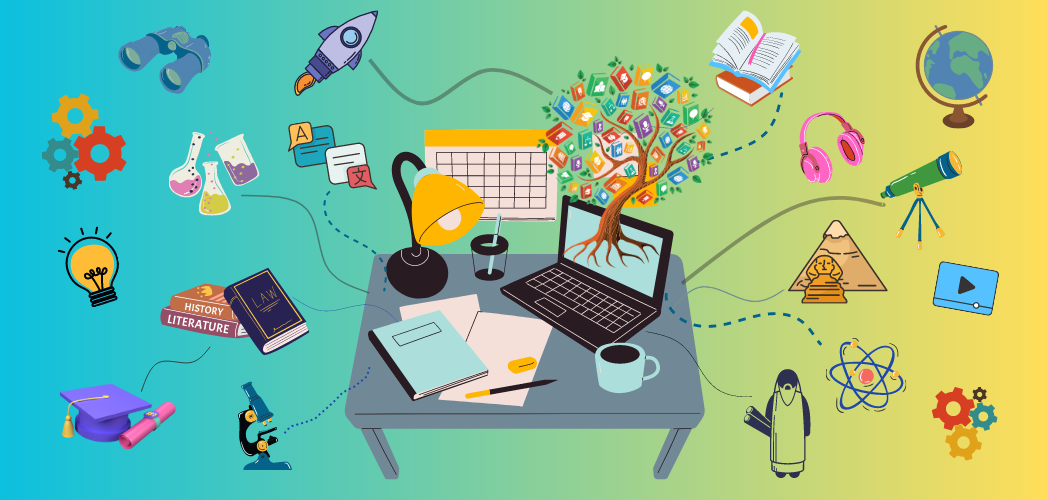Catriona Matthews and Paul Astles ~ Learning Designers
We had the honour and privilege of discussing this very blog site at the ALT Open Education Conference (#OER23) this year. OER, if you haven’t come across the term before, refers to Open Educational Resources.
Our talk, held on the second day of the conference and titled “Read all about it!! The benefits and challenges of creating a high-quality open access blog”, can be viewed here on YouTube. The last slide of the talk is represented in an image below. We would love for you to follow the QR code at the bottom of that slide and tell us how a particular blog post on our site may have inspired you to reflect on and develop your practice.

During the conference we were on Twitter, live-tweeting our thoughts and reflections. Some of these were being re-tweeted by the team account. If you haven’t had a chance yet, please follow the OU Learning Design team Twitter account. You will get a good flavour of our experiences and takeaways on there.
For anyone who sometimes feels overwhelmed with all the information thrown at you at a conference, this felt like a good exercise in reflection. It made us summarise our learning and thoughts immediately rather than leaving it for later, when you are desperately trying to decode your notes!
In each of our Twitter posts we challenged the audience to consider a particular question or reflect on a key takeaway from each of the talks that we attended. Feel free to respond to any that pique your interest or use them as a reflective prompt to consider in your own context. Instead of rehashing our commentary on Twitter within this blog post, we felt it would be good to recall our own favourite moments and provide some further reflection about them. We’re focusing in on the sessions we explored within the online offering during the conference. So here we go! Buckle up and enjoy the highlights reel below.
Paul’s reflections on his experience of #OER23
This was my first OER conference and I found it to be very welcoming and engaging as an online participant. A couple of dodgy microphone moments to one side, it was an excellent experience to be a part of. I would recommend anyone connected with open education to connect with the freely available videos on the ALT YouTube channel . There were some wonderfully playful and insightful moments, the balance of thought-provoking prose and audience interaction landed perfectly for me. My favourite quote from the whole conference simply stated that “ChatGPT is to education what autotune is to music”. 
A wonderfully simple and effective analogy. It creates the perfectly imperfect responses that we should be challenging students to use in a purposeful manner rather than attempting to create barriers to make the technology harder for them to use.
My personal highlight though was to consider the question: When is an open education resource not an open educational resource? This is not a riddle with a clever answer, I found it to be a thought-provoking moment that challenged me to think about the implications of its answer. It was intriguing to consider how something that was perhaps intended to be open access can find its way on to an institutional learning environment and therefore become inherently no longer open access if it is stored behind a login. There was a strong Open University presence at OER23 and I really enjoyed the sessions connected to OpenLearn. One thing I found fascinating was a snapshot of the high-level use of data for OpenLearn.

16 million visits show the mind-bending scope and importance of open education resources. One question I would like to leave you to reflect on is connected to the value and benefit of bitesize educational experiences. As the world continues to move in the direction of snappy consumable content in the realms of social media and entertainment, how do you feel about using that methodology in education? What are the benefits of bitesize? And how do you hope to use them to develop learning experiences?
Catriona’s reflections on her experiences of the #OER23 conference
We started the first day of the conference with a mind-bending keynote that introduced us to the delights of ‘towels’ (tiger owls, not the drying up kind) and other imaginary hybrids while breaking down our assumptions of what learning is, should, and could be for. As promised by the speaker, Rikke Toft Nørgård, the talk raised more questions than it resolved and truthfully left me feeling a little overwhelmed and confused from the use of philosophical language and complexly interweaving possibilities and improbabilities.
Trying to untangle this talk led to interesting conversations with colleagues and collectively we tried to summarise what we thought the main takeaway was. Our conclusion was as follows: that as educators we need to map out different alternatives and combinations that could influence our preferred end point (which is unpredictable and not guaranteed), rather than just following stoically the path we are already on. By considering the improbable we may create a future that is better than the one we had already envisioned.
The talk also explored some ‘Hopepunk’ Hyber Hybrid futures (Hopepunk, according to Collins dictionary, is a ‘literary and artistic movement that celebrates the pursuit of positive aims in the face of adversity’). One of these posited the idea of planet wide OERs that de-centre OERs as being just for and centred on human betterment and instead focus on care for the planet. You can see other interpretations of what this could mean in the slide below.

Our team is currently working hard to explore sustainability and educational design. One of our colleagues has even written a blog post which calls us to imagine and positively describe sustainable futures as a first step to building them. We are still working out the connections between the work our team is doing on sustainability and the call to design for ‘unrealistic’ futures but are excited to connect the two thoughts and see what emerges.
Creating or even trying to imagine change of this scale, is almost unfathomable and a bit overwhelming but equally exciting. I’d invite you to reflect on what your ‘unrealistic’ future vision for education might be, you might find it’s more realistic and more achievable than you first thought.
[Banner image: Shawndra Hayes-Budgen / Canva]

